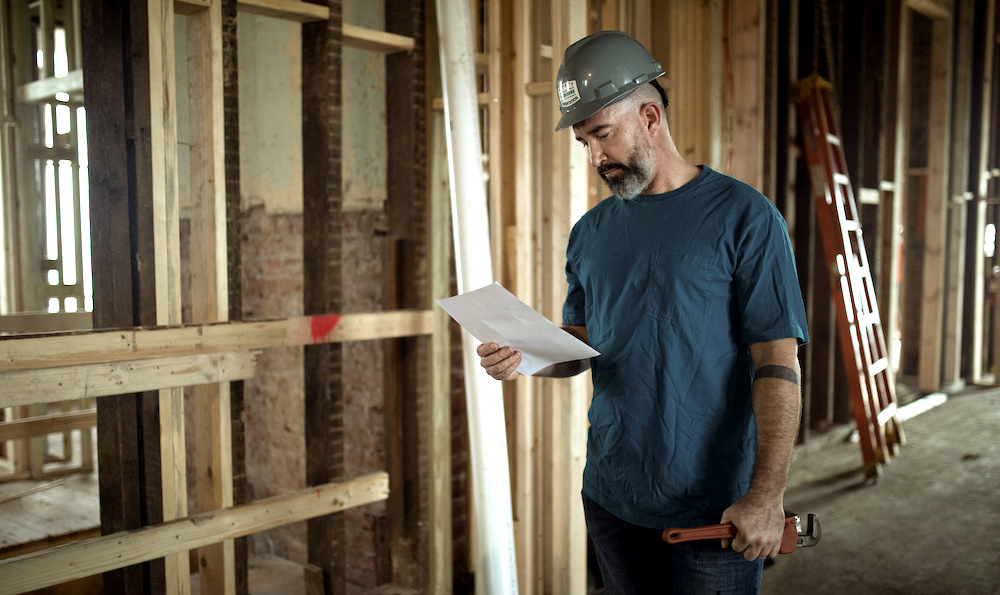House Contractors for Dummies
Table of ContentsWhat Does Builder Contractors Do?Rumored Buzz on General Contractor Near MeRemodel Contractor Near Me Things To Know Before You Get ThisThe Definitive Guide for Remodel Contractors Near MeThe Greatest Guide To Building Contractor Near Me
By Chron Contributor Updated July 15, 2020 Building a home is a complicated process that includes knowledge of architectural design, constructing codes, zoning policies and standard building and construction components. A property building specialist supervises the building and construction of individual homes and multi-unit real estate tasks. A commercial structure contractor supervises the construction and renovation of stores, malls, hotels and other commercial tasks.A structure specialist finds, solicits quotes from and schedules all of the subcontractors that are essential to finish the project. The brand-new property owner or company owner agreements with the structure professional, and the structure professional contracts with the subcontractors and suppliers. Specialists typically charge from 10 percent to 20 percent of the total project cost for this service, according to Angie's List.
A prospective new homeowner or company owner typically talks to 2 or three contractors and requests quotes from each. A big contractor might have a bidding department that analyzes jobs and sends bids. Small contractors figure their own bids. If chosen, the structure contractor deals with whatever from obtaining licenses, conference with House Owners Associations, or HOAs, ordering products, scheduling code examinations and managing the building (licensed contractor near me).
The Main Principles Of Building Contracting

Many building and construction professionals know something about construction before starting their own contracting business. Usually, this includes working for a general building professional for a number of years - building contractors reviews. In some communities, prior experience is a requirement. States can set licensing standards, but individual counties or towns typically have stricter requirements, which can consist of testing, supplying evidence of commercial liability insurance coverage, obtaining surety bonds for particular tasks and limits on the monetary scope of a project a contractor is permitted to bid.
Occupation A general professional, main specialist or prime contractor is accountable for the daily oversight of a building and construction website, management of suppliers and trades, and the communication of information to all included parties throughout the course of a building project. A basic contractor is a building manager utilized by a client, usually upon the recommendations of the task's designer or engineer (house contractor near me).
Some Known Facts About Builder Contractors.
A general professional should first evaluate the project-specific documents (described as a quote, proposal, or tender documents). In the case of remodellings, a website you can try these out visit is required to get a better understanding of the project. Depending on the project delivery method, the contractor will submit a fixed cost proposal or quote, cost-plus cost or a price quote.
Agreement files may include drawings, job handbooks (including general, supplementary, or unique conditions and requirements), and addendum or adjustments released prior to proposal/bidding and prepared by a design expert, such as a designer. The basic specialist may be the building supervisor or building and construction supervisor at high risk. [] A general contractor is accountable for offering all of the material, labor, devices (such as engineering automobiles and tools) and services needed for the building and construction of the task.
When using subcontractors, the general specialist is accountable for the quality of all work performed by any and all of the hires. The basic contractor's primary priority is safety on the job site. A basic professional's responsibilities might consist of view using for structure permits, recommending the person they are worked with by, protecting the residential or commercial property, supplying short-lived utilities on site, handling personnel on website, supplying site surveying and engineering, disposing or recycling of construction waste, monitoring schedules and cash circulations, and preserving precise records.
The Buzz on Remodel Contractors Near Me

The basic contractor manages the subcontractors work and ensures its quality. In the UK and some British Commonwealth countries, the term 'general professional' was slowly superseded by 'main specialist' throughout the early twentieth century. This was the term utilized by major professional, trade, and customer companies when issuing contracts for construction work, and thus the term 'basic professional' fell out of usage except in large organizations where the main contractor is the top manager and a basic contractor shares duties with expert specialists.
This term is likewise utilized in contexts where the consumer's instant professional is permitted to sub-contract or scenarios are likely to involve sub-contracting to expert operators e. g. in numerous civil services. Licensing requirements to work lawfully on construction jobs vary from location to locale. In the United States, it is the states' obligation to define these requirements: for example, in the state of California, the requirements are mentioned as follows: "With a few exceptions, all services or people who work on any structure, house contractor highway, roadway, parking facility, railway, excavation, or other structure in California must be licensed by the California Contractors State License Board (CSLB) if the overall expense of one or more agreements on the job is $500 or more." In every state (that needs a license), a surety bond is needed as part of the licensing process, with the exception of Louisiana, where bonding requirements may differ in different parishes.
In the United States, there are no Federal licensing requirements to end up being a basic contractor, although the majority of states need basic professionals to obtain a local license to run. Some general contractors get bachelor's degrees in building science, constructing science, surveying, construction security, or other disciplines. General specialists typically start as building employees.
An Unbiased View of General Contractor Near Me
Ambitious basic professionals interact with subcontractors and may find out the management abilities they need to run their own business. Experience in the construction market in addition to references from consumers, organization partners, or previous companies are required. Some jurisdictions require candidates to offer proof of funding to own their own basic contracting firm.